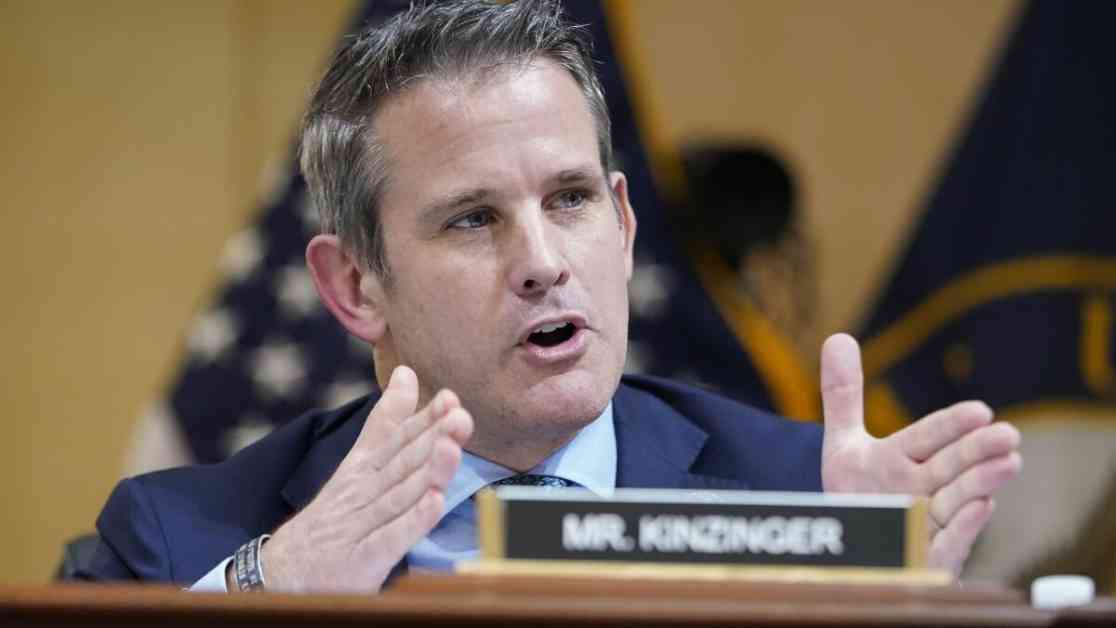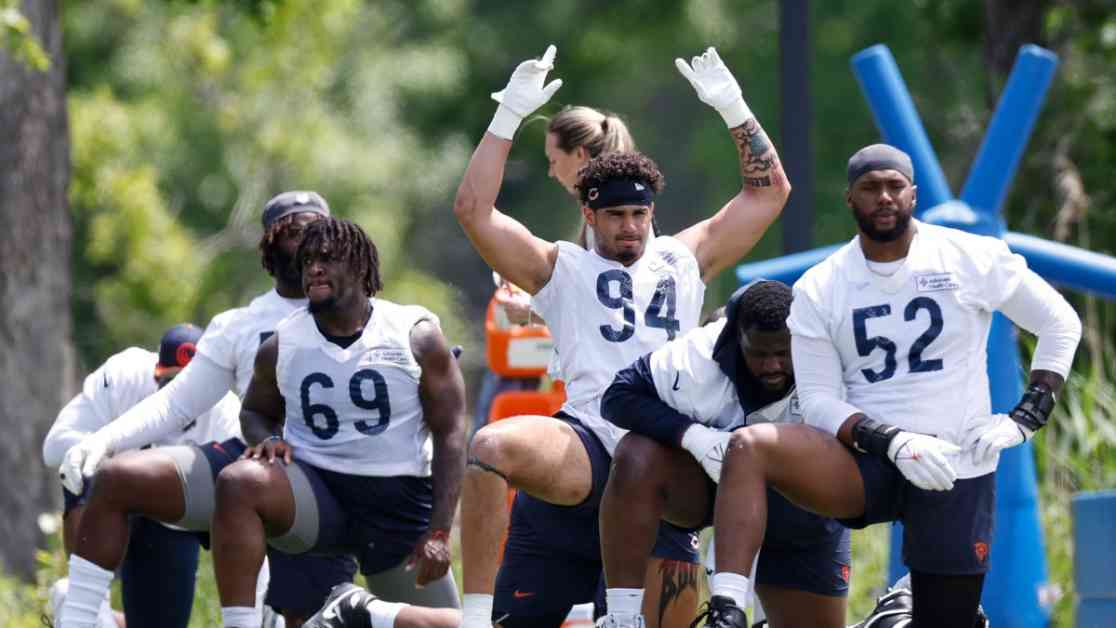Republicans supporting Kamala Harris: A Surprising Alliance
The political landscape in the United States has taken a dramatic turn as high-profile Republicans have come forward to voice their support for Democratic Vice President Kamala Harris. This unexpected alliance has left many observers puzzled, as these Republicans were once staunch supporters of former President Donald Trump.
Rich Logis, a 47-year-old business owner from Delray Beach, Fla., who was once a vocal member of the MAGA movement, has now renounced his support for Trump. In a video address during the Democratic National Convention, Logis admitted that he had been disillusioned by Trump’s false claims and divisive rhetoric. He is just one of several prominent Republicans who have chosen to speak out against Trump at the DNC.
Former Illinois Rep. Adam Kinzinger, who was one of the House Republicans who voted to impeach Trump after the Capitol attack on January 6, 2021, is scheduled to address the DNC this week. Joining him are other notable Republicans such as Georgia’s former Lt. Gov. Geoff Duncan, former White House press secretary Stephanie Grisham, and former Trump White House national security official Olivia Troye.
The decision of these Republicans to support Harris comes at a crucial time, as national polling averages show her leading Trump by 2.9 percentage points. The Biden campaign has recognized the importance of reaching out to disenchanted Republicans and has hired a national director of Republican outreach, Austin Weatherford, to spearhead the effort. Weatherford launched “Republicans for Harris,” a program aimed at convincing GOP voters to consider Harris as a viable alternative to Trump.
“We are here to build a coalition of Republicans speaking to Republicans about Trump’s unfitness to serve,” Weatherford stated during a recent virtual meeting of Republicans for Harris. He emphasized that while Republicans may not agree with Harris on every issue, she has shown a willingness to listen and learn from all sides.
The testimonials of Republicans who have turned against Trump are being featured in a $50-million advertising campaign called Republican Voters Against Trump. One such testimonial comes from a man identified only as “Jeff” from Antioch, Calif., who declares that he will not be voting for Trump in 2024. Jeff, a lifelong Republican and former Trump voter, accuses Trump of having “nothing but contempt for the American people.”
For Logis, the turning point came when Trump refused to accept the results of the 2020 election and incited the Capitol riot. He also cites Florida Gov. Ron DeSantis’ handling of the COVID-19 pandemic as a reason for reevaluating his support for Republicans. Now leading a group for former Trump supporters called “Leaving MAGA,” Logis encourages others to follow his lead in distancing themselves from Trump.
The support for Harris among Republicans is reminiscent of the 2016 election when former Secretary of State Colin Powell endorsed Joe Biden. Powell criticized Trump for dividing the country and expressed hope that Biden would unite and strengthen the nation. Similarly, former Ohio Governor John Kasich, who challenged Trump for the 2016 nomination, threw his support behind Biden, prioritizing his duty to the country over party loyalty.
While many Republicans acknowledge that they do not agree with Harris on every issue, they view her as a preferable alternative to Trump. Geoff Duncan, the former Lt. Gov. of Georgia, explains that his decision to support Harris was driven by his moral objections to Trump’s character. Duncan believes that working with Harris and the Democrats can help steer American politics towards the center and promote unity.
Despite the backlash from some Georgia Republicans over his support for Harris, Duncan remains committed to his decision. He believes that governing from the middle ground is essential for the country’s progress and stability. Duncan’s stance reflects a growing sentiment among Republicans who are disillusioned with Trump’s leadership and are seeking a more moderate approach to governance.
The debate within the Republican Party over supporting Harris underscores the deep divisions that exist within the conservative movement. While some Republicans urge their fellow conservatives to vote for Harris as a repudiation of Trump, others caution against abandoning their principles in favor of a Democratic candidate. Conservative radio host Erick Erickson warns against voting for Harris solely as a means to oppose Trump, arguing that true stewardship involves rejecting evil altogether.
As the 2024 election approaches, the alliance between Republicans and Harris is likely to intensify. The shift in allegiance among prominent Republicans signals a broader realignment within the party and a growing willingness to break with tradition in the name of principle. Whether this alliance will lead to lasting change in American politics remains to be seen, but one thing is clear: the Republican support for Kamala Harris is a surprising development that could have far-reaching implications for the future of the country.



























